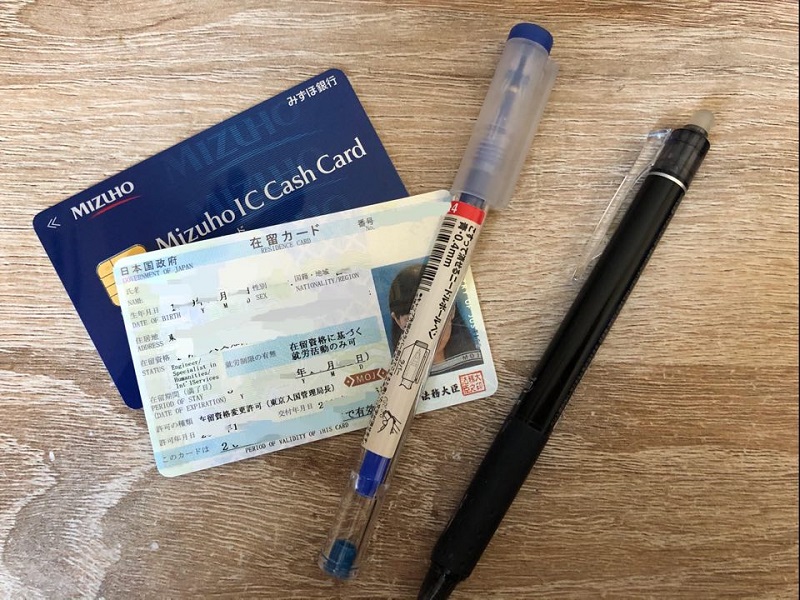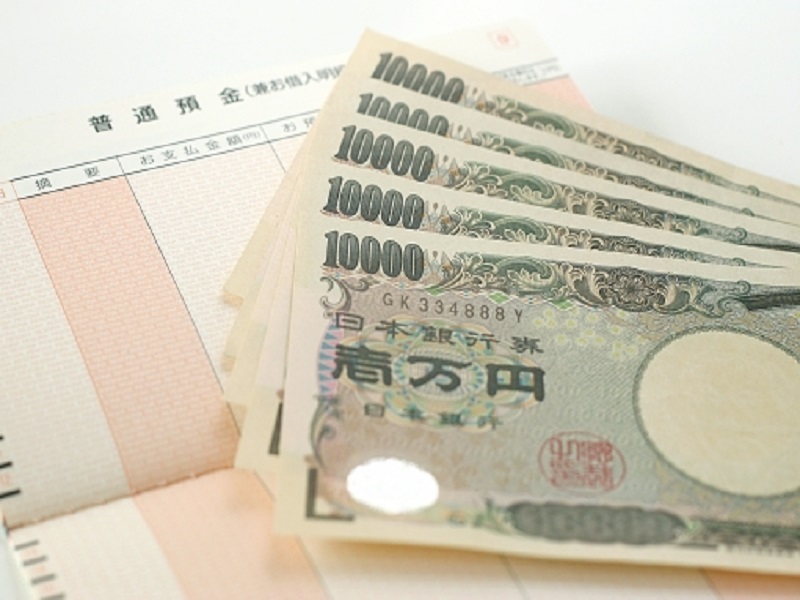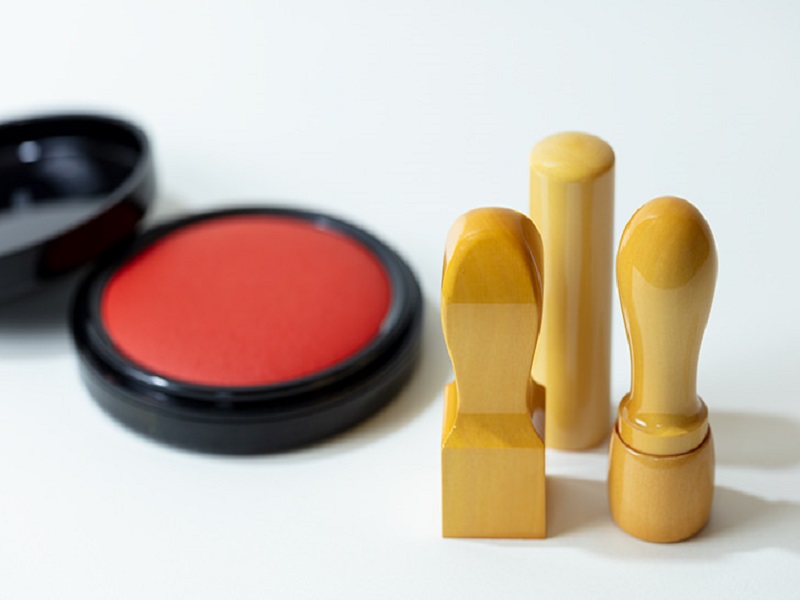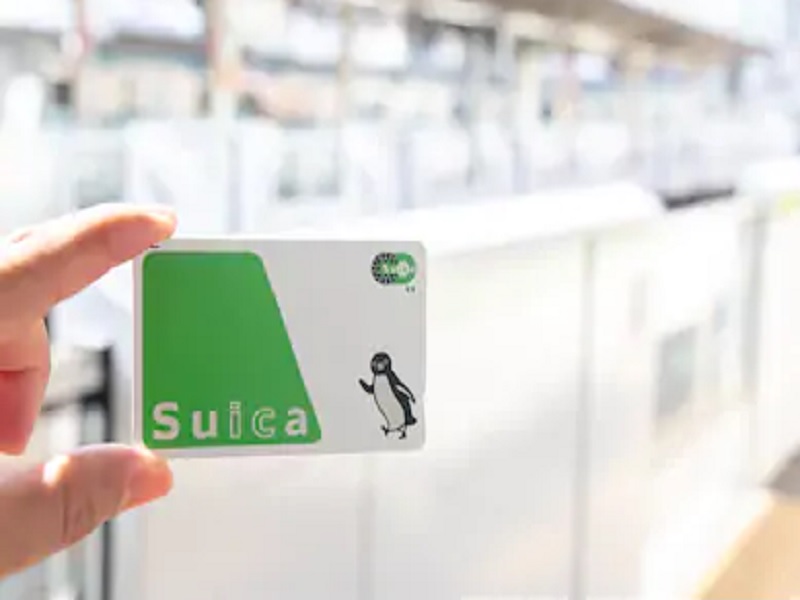NEWS&BLOG
最新情報/部落格更新狀況

Hi everyone! This is Claire from Borderless House. Today’s blog topic is super important as I will be covering some essential information for anyone who is planning on moving to Tokyo for an extended period of time. If you are coming to Japan on a travel visa for under 90 days, then there are fewer logistics to think about, but I will briefly touch on some things that you might want to be aware of as well, so be sure to read through.
This by no means will be an exhaustive list, but hopefully will help out a bit!
Also check out this prior Borderless House blog for more information.
Zairyu Card/Residence Card

Just as you would carry your own driver's license or identification in your home country, you are also required to carry an official form identification in Japan. This means that you will either need to have your passport or your residence card with you at all times. Even just going to the grocery store, or for a more exciting outing with friends at night, please please make sure that you have a form of legal identification. This is an extremely important point because you may at any point be asked by the police for identification, and being unable to produce a passport or Japanese-government issued form of identification will incur at the very least a fine, and could even result in jail time and deportation.
For individuals who are not here on a visa, the only legal form of identification that you have is your passport, so please carry it with you at all times- even to the bars and clubs. For individuals who are here on a visa, you will receive a Japanese-government issued card called a “Zairyu Card | 在留カード.” If you are entering into Japan already with landing and visa permission, then you will receive your zairyu card when you go through customs.
Ward Registration, Insurance, & My Number

The next step once you have left the airport and settled in is to make a visit to your local Civic Center. During this trip, two very important things will happen: 1) register your address, and 2) you will sign up for health insurance (保険). You are supposed to register a permanent address within 2 weeks of moving, at which time your address will get printed on your residence card, allowing you to properly receive important mail and information. Health insurance is also mandatory for any person staying longer than 3 months in Japan.
My case was a bit interesting as I stayed in an AirBnB for 2 weeks before moving into my sharehouse, so technically I had been in Tokyo for over 2 weeks without a registered address when I went to the office ward. Although this was ultimately not an issue, I definitely recommend settling into permanent accommodations and registering your address as soon as possible, preferably within those first two weeks of your arrival in Japan. As stated before, registering your address will ensure that you receive all important notifications that will be delivered through the mail, such as your insurance bills, tax documents, and my number card.
A “My Number card | 個人番号カード” is a form of personal identification number which will be needed for administrative purposes such as opening a bank account and paying taxes. In America, My Number is the equivalent of a Social Security Number. A paper version of your card will arrive in the mail a few weeks after registering at the ward office. Included with this paper-version card will be an application for a more formal, non-paper, card. Although not necessary, this more official My Number card is very useful for individuals staying longer term. Simply fill out the application and use the included return envelope! You can also apply online at a later time. Although the My Number card does not replace your residence card as a form of identification, you should also be sure to carry your My Number card with you at all times.
For acquiring health insurance, there are two types: National Health Insurance (国民健康保険) and Employee’s Health Insurance (健康保険). As I was not an official company employee when I arrived in Tokyo, I was initially enrolled in the National Health Insurance program. My insurance bill and insurance card simply arrived at my house in the mail, at which time I could choose to pay it month-by-month or all at once at a local convenience store. It was quite hassle-free and easy. The difference with Employee’s Health Insurance is that your insurance fees are deducted from your salary, so the payment is handled through your company. In addition to carrying your residence and My Number card with you, you should also carry your insurance card with you at all times.
As a foreigner, receiving all of these notifications in Japanese can seem daunting, especially if you cannot read Japanese. One of the great parts about living in a BORDERLESS HOUSE is that you will always have housemates who will be able and willing to help translate important information!
Bank Account

If you are staying longer term in Japan and especially if you are working in Japan, another thing that you will want to consider is opening a bank account. Your salary will in almost all cases be paid into a Japanese bank account and you will also be able to use your bank account to make payments in Japan without incurring international exchange fees. On the most basic level, the two most important things that you should consider when opening a bank account are if the bank offers English support and if you have a convenient bank branch/ ATM nearby. There is a lot of information online regarding different banks and the services they offer. As banking is a very personal matter, make sure that you do your research, communicate with your employer, and choose what is best for your own situation.
Hanko

On the subject of bank accounts, one thing that you will need for everyday use is a hanko (判子), or personal seal. These stamps replace a pen signature and many banks and other institutions require you to “sign” with your hanko stamp rather than with a pen. These stamps need to be officially made, so check online for the nearest store which can legally make you an official personal seal. You will also need to register your personal seal at your local ward office. Please be noted that the name on your hanko must match your legal name, meaning that for foreigners who do not have a legal name which is written in kanji characters, you must resort to using either hiragana, katakana, or romaji. There are tourist “hanko” stamps sold at places like Don Quixote and 100 yen stores, but be aware that a random cat-shaped stamp etc. will not be sufficient for official use when signing documents. Hanko prices range in price based on the materials which they are made from, but generally, you can get an official hanko made for somewhere around 1,000 yen. Although it is technically possible to go through life in Japan without a hanko, the repeated amount of times that you will be required to sign within a circular hanko-shaped area on documents will continually remind you that it might just be easier to go and make a personal seal. Plus, it makes for a cool personal souvenir if you plan to return back to your home country in the future!
Japanese Phone Number

Another thing which will prove almost as handy as your hanko is having a Japanese phone number. It is possible to survive in Japan with data-only SIM cards, as we now have the technology to connect internationally through data and WiFi. However, many times when filling out official documents, and even when opening a bank account, you will need to have your own Japanese phone number. Depending on the length of your stay, there are a few options. For a stay of less than 2 years, you will find that it is really difficult to get a short-term phone contract with any established phone companies here in Japan. There are some cheap SIM rental options, my personal favorite being Sakura Mobile, which allows you to choose a data and talk plan that fits your usage needs, and which do not require you to sign longer-term contracts. Again, similar to opening a bank account, each person’s needs are very specific. Luckily there is a lot of readily available information on Japanese phone companies and plans for foreigners. Make sure that you do your research and choose the company and plan which will be best for you!
Transportation Needs

As a foreigner in Tokyo, you will be able to get where you want to go without a car. The public transportation system in Tokyo is incredible, and it is a very bike-friendly city. For people who are planning to travel within the city a lot, one thing that you will use on a daily basis is an IC card. These cards act as rechargeable transportation cards which you tap at train gates and on buses to pay your fair. IC cards can be made at almost all train stations at a charging station where you normally buy your tickets. The two main cards that are used in Tokyo are Suica and Pasmo. Either card will work just fine, as the main difference between these cards are the manufacturing company and stations at which they can be purchased or returned. Aside from using your IC card for taking public transit, you can also use it at many different designated convenience stores to make purchases!
When you are not traveling by public transit, it is very refreshing to take walks throughout Tokyo and explore the city on foot. Make sure that you are well stocked on slip-on shoes that are durable and comfortable to walk. There is nothing worse than having to take 5 minutes putting on shoes every time you leave the house, only to get a blister after another 5 minutes into your walk. Your time and attention should be fully devoted to getting the most out of every opportunity that this great city has to offer!
Although this post is less exciting as many other topics, I hope that it helps many of you who are preparing to make the move to Tokyo. We here at BORDERLESS HOUSE are eagerly awaiting your arrival! If there is anything that we can do to help your move, or solidify your plans to come to Japan, BORDERLESS is here to answer your questions and offer advice.





